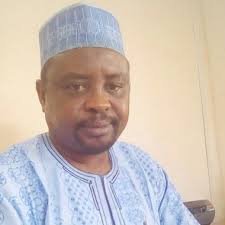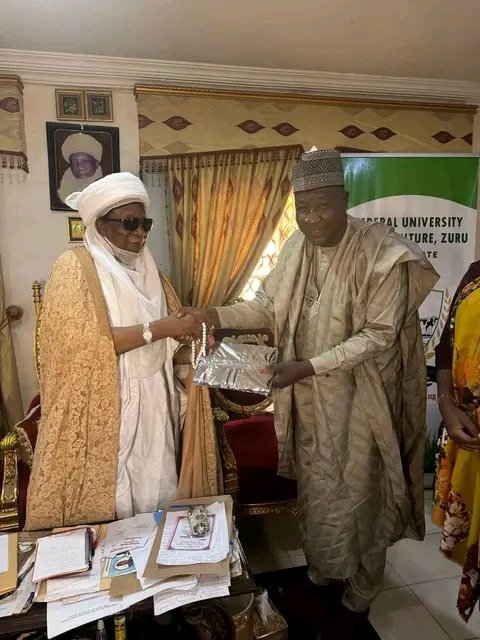El-Rufai And The Southern Kaduna Question: Breaking The Altar Of Manipulation
By Hon. Abubakar MG, Political Scientist

I decided to embark on this research after observing how everything in Nigeria today is reduced to politics, how people twist facts, manipulate emotions, and rewrite history just to destroy the reputation of others. Seeing how Mallam Nasir El-Rufai has been continuously attacked and unfairly blamed for the Southern Kaduna conflict, I chose to conduct a deep and independent investigation. I wanted to separate truth from propaganda. In the course of this research, I traveled to various communities in Southern Kaduna, sat with elders men who have seen decades of blood, bitterness, and failed peace efforts and I studied credible academic works including “The Crisis of Belonging and Ethnographies of Peacebuilding in Kaduna State, Nigeria” and “Civil-Military Relations and Conflict Management in Nigeria: A Study of Southern Kaduna Conflict (2010–2017).”
Through these studies and first hand engagements, I gathered a profound understanding of the origins, evolution, and manipulation of the Southern Kaduna conflict. My findings are clear, the crisis did not begin with Mallam Nasir El-Rufai. Its roots lie deep in historical tensions driven by indigene versus settler debates, competition over land between farming and pastoralist groups, and decades of government absence in enforcing justice and development. The conflict thrived because successive governments allowed local elites to exploit it either through weak law enforcement, political favoritism, or deliberate neglect of rural communities.
The book “The Crisis of Belonging and Ethnographies of Peacebuilding in Kaduna State” particularly highlights how colonial structures and post colonial identity politics deepened the indigene settler divide. Southern Kaduna became a battlefield not because its people were naturally violent, but because politics weaponized ethnicity and religion as tools for dominance. Meanwhile, “Civil Military Relations and Conflict Management in Nigeria (2010–2017)” reveals how the crisis persisted due to inconsistent state responses weak law enforcement, poor intelligence coordination, and manipulation by politicians seeking sympathy or revenge.
I must emphasize this with absolute clarity, El-Rufai inherited a region already bleeding from decades of failed leadership. When he assumed office, Southern Kaduna was a metaphor for chaos, highways turned into death traps, farmlands deserted, schools destroyed, and markets crippled. Entire villages had been burned down, and the local economy was paralyzed. It was not governance, it was survival.
Unlike his predecessors, El-Rufai did not approach the crisis with sentiment or selective empathy. He approached it with enforcement, policy, and a commitment to ending impunity. For the first time, a governor refused to pay so called “compensation” or “blood money” to communities, knowing such practices only rewarded violence. Before his reforms, each crisis would end with payouts creating a perverse incentive for new rounds of bloodshed. El-Rufai said, “No more.” That decision was not cruelty, it was governance. It was a rational moral act, a stand against institutionalized blackmail that had for decades fueled revenge attacks under the disguise of justice.
My research revealed that what many called El-Rufai’s “bias” was in fact the first true attempt at neutrality in Southern Kaduna. For the first time, a governor declared that no tribe, religion, or group had monopoly over victimhood or justice. Whether the culprit was a Fulani herder or a Christian farmer, justice had to prevail equally. Yet, this impartiality became his greatest sin in the eyes of those who had built their entire political survival on perpetual division.
I also discovered that most of the loudest critics of El-Rufai are not the rural poor not the farmers, herders, or traders who lost their livelihoods but the political elite who thrived on conflict. These are individuals who have never visited a mass burial, who never comforted widows, but who constantly amplify division in newspapers and television interviews. They weaponized victimhood, portraying themselves as defenders of their people while feeding off the chaos that killed their own. El-Rufai disrupted this lucrative enterprise, and for that, he became their public enemy number one.
Let me state this unapologetically, El-Rufai’s approach to Southern Kaduna was the most intellectually grounded peace policy in the region’s history. His policies were designed to break the endless loop of revenge and counter-revenge. As a political scientist, I have always argued “If bringing lasting peace to 1 million people requires confronting or even losing 1000 violent elements, then it is not cruelty, it is justice.” Peace without justice is hypocrisy.
Southern Kaduna elites want a peace built on pity and manipulation, while El-Rufai offered a peace built on law and equality. That is why they hate him. They want a leader who will cry publicly and settle privately. El-Rufai refused. He understood that a government that compromises justice to please emotions destroys its own authority.
Today, the facts speak louder than propaganda. The scale of communal crises in Southern Kaduna has drastically reduced compared to pre El-Rufai years. Rural roads are safer, farming has resumed in areas that were once abandoned, and schools that were shut down due to insecurity are reopening. This stability was not gifted by luck it was enforced through courage, policy, and discipline.
Economically, El-Rufai administration redirected resources into rebuilding education and rural infrastructure rather than funding peace meetings that produced no peace. He insisted that governance must deliver structure, not slogans. Critics called it arrogance, I call it leadership.
In my professional judgment, history will vindicate Nasir El-Rufai. He was not a perfect man no leader is but he was the first to face Southern Kaduna crisis without pretending that tears alone could solve it. He confronted it with enforcement, not excuses. He restored the authority of law over sentiment, and he dared to make decisions that others feared would cost them votes.
Those who accuse him today do so not out of love for peace, but out of bitterness for lost political control. They know that once peace takes root, their manipulation dies.
As I conclude this first episode of my findings, I make this assertion as a student of history and a scholar of political behavior, Southern Kaduna problem was never El-Rufai. It was the politics of grievance, the economy of conflict, and the religion of blame. El-Rufai merely broke their altar of manipulation, and for that, they call him heartless. But someday, even his fiercest critics will admit that he gave Southern Kaduna the one thing they had not experienced in decades the beginning of true peace.
And I stand by that truth, not because it is popular, but because it is right.
abubakarmuddaha45@gmail.com





